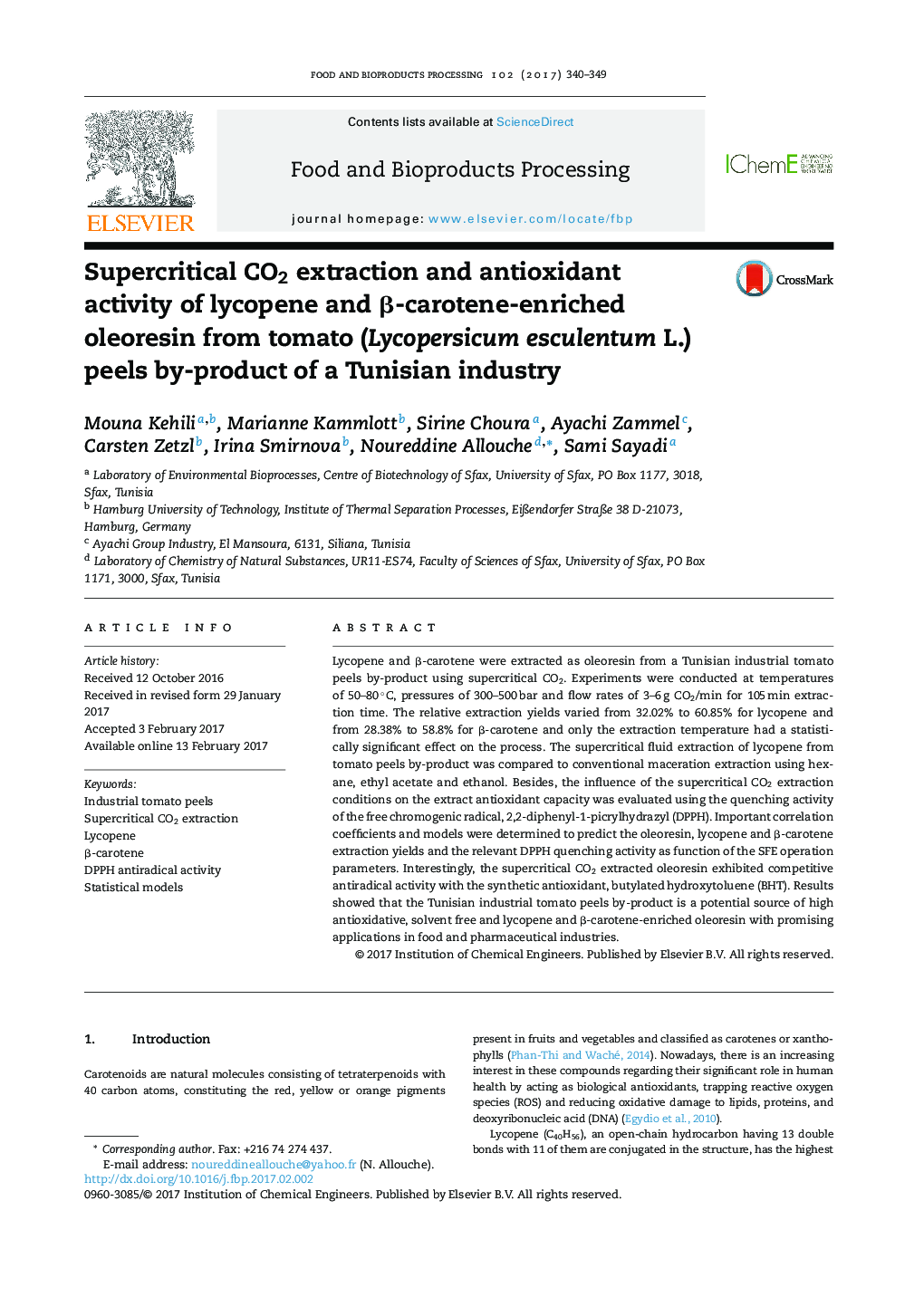| Article ID | Journal | Published Year | Pages | File Type |
|---|---|---|---|---|
| 4752979 | Food and Bioproducts Processing | 2017 | 10 Pages |
Abstract
Lycopene and β-carotene were extracted as oleoresin from a Tunisian industrial tomato peels by-product using supercritical CO2. Experiments were conducted at temperatures of 50-80 °C, pressures of 300-500 bar and flow rates of 3-6 g CO2/min for 105 min extraction time. The relative extraction yields varied from 32.02% to 60.85% for lycopene and from 28.38% to 58.8% for β-carotene and only the extraction temperature had a statistically significant effect on the process. The supercritical fluid extraction of lycopene from tomato peels by-product was compared to conventional maceration extraction using hexane, ethyl acetate and ethanol. Besides, the influence of the supercritical CO2 extraction conditions on the extract antioxidant capacity was evaluated using the quenching activity of the free chromogenic radical, 2,2-diphenyl-1-picrylhydrazyl (DPPH). Important correlation coefficients and models were determined to predict the oleoresin, lycopene and β-carotene extraction yields and the relevant DPPH quenching activity as function of the SFE operation parameters. Interestingly, the supercritical CO2 extracted oleoresin exhibited competitive antiradical activity with the synthetic antioxidant, butylated hydroxytoluene (BHT). Results showed that the Tunisian industrial tomato peels by-product is a potential source of high antioxidative, solvent free and lycopene and β-carotene-enriched oleoresin with promising applications in food and pharmaceutical industries.
Related Topics
Physical Sciences and Engineering
Chemical Engineering
Bioengineering
Authors
Mouna Kehili, Marianne Kammlott, Sirine Choura, Ayachi Zammel, Carsten Zetzl, Irina Smirnova, Noureddine Allouche, Sami Sayadi,
